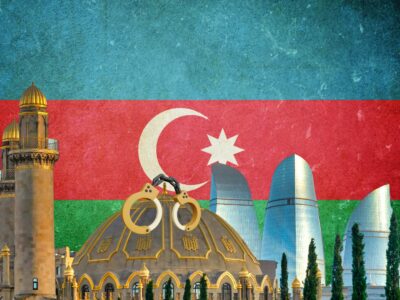| The 62nd International Youth Congress (IJK) of Esperanto was held in Sarajevo this year. Around 300 young people gathered in Bosnia-Hercegovina for concerts, theater, films (with Esperanto subtitles), dancing, and discussion — all in Esperanto, of course. Anderson “nehundo” MILLS, a doctoral student at the University of Texas Austin, attended the IJK for the second time and provided a list of the top moments and memories for him: |
La 62a Internacia Junulara Kongreso (IJK) de Esperanto okazis en Sarajevo ĉijare. Proksimume 300 junuloj kunvenis en Bosnio-Hercegovinio por koncertoj, teatraĵoj, filmoj (kun Esperantaj subtitoloj), kaj diskutado — en Esperanto, kompreneble. Anderson “nehundo” MILLS, doktora studento de la Universitato de Teksaso en Aŭstino, partoprenis je Ia JK por la dua fojo kaj provizis liston de la plej elstaraj momentoj kaj memoroj por li:
|
- played dominoes with the guy from Egypt in the Chicago airport.
- “Would you have public sex?”
- told the story of my hand accident two times.
- saw my daughters and granddaughter again.
- the foodservers went crazy about my painted nails.
- walked around the old city.
- the diver at the old bridge in Mostar.
- “Strawberries.”
- spent a lot of time with the from-birth-speakers*, and learned the the truth about a lot of myths about them.
- got invited into the room of a French woman.
- taught 42 (the national game of Texas) to 8 people.
- beatboxed on a microphone in front of 400 people to a standing ovation!
- got mocked for my American accent when I was tired and complimented for my lack of accent when I wasn't.
- the African scaring the local kid.
|
- ludis domenon kun egipto en flughaveno de Ĉikago.
- “ĉu vi volis seksumi publike?”
- rankontis la rakonton pri mia manvundon dufoje.
- vidis miajn filinojn kaj nepinon denove.
- la manĝaĵservistinoj frenezis pri miaj farbitaj ungoj.
- piediris ĉirkaŭ la malnova urbo.
- la plonĝisto ĉe la malnova ponto en Mostar.
- “Fragoj.”
- pasigis multe da tempo kun la denaskuloj*, kaj rompis mitojn pri ili.
- Galaksia Krozŝipo ‘Ludoviko’
- invitiĝis en la ĉambron de francino.
- instruis 42-on (la nacia ludo de Teksaso) al 8 homoj.
- buŝtamburis per mikrofono antaŭ 400 homoj, kaj ili aplaŭdegis!
- mokiĝis pri mia akĉento kiam mi estis laca, kaj komplimentiĝis kiam mi estis nelaca.
- la afrikano timigis la lokan knabon.
|
| * The term “from-birth-speakers, or denaskuloj refers to people who learned Esperanto as thir first language. Esperanto speakers from different countries fall in love and get married, with some frequency (enough so that people sometimes joke that Esperanto is really edzperanto or “marriage broker”). Since the only common language such couples typically have is Esperanto, they tend to speak Esperanto in the home and, when they have children, the children learn Esperanto as their first language. Estimates are that there are a couple of thousand denaskuloj worldwide. |
* La terminon “denaskuloj” temas homojn kiuj lernis Esperanton kiel sia unua lingvo. Esperanto-parolantoj de malsamaj landoj amiĝas kaj geedziĝas je iu frekvenco (sufiĉe ke homoj foje ŝercas ke Esperanto estas vere “edzperanto”). Pro tio ke la nura komuna lingvo de tiaj paroj estas Esperanto, ili emas paroli Esperanton en la hejmo kaj, kiam ili havas infanojn, la infanoj lernas Esperanton kiel sia unua lingvo. Oni proksimumas ke estas dumil denaskuloj tra la mondo. |
| There are a lot of people who are surprised to learn that Esperanto is actually spoken anywhere. It turns out that there are actually a substantial number of international meetings where Esperanto-speakers meet and talk in Esperanto. The biggest meeting is the World Congress of Esperanto (abbreviated “UK” and pronouced “ooh-KOH”), which was held in 2006 in Florence, Italy, and brought in 2100 people from 63 countries around the world. SIBAYAMA Zyun'iti, a computer programmer from Yokohama, Japan, participated in the UK this year, anticipating when Yokohama hosts the UK next year. During the closing ceremony, he described the remarks of the local organizing committee from Japan receiving the congress'flag: |
Estas multaj homoj kiuj surpriziĝas ke oni eĉ parolas Esperanton ie ajn. Fakte, okazas sufiĉe multe da internaciaj renkontiĝoj kie Esperanto-parolantoj kunvenas kaj parolas Esperante. La plej granda estas la Universala Kongreso (UK), kiu okazis en 2006 en Florenco, Italio, kaj allogis 2100 homojn de 63 landoj ĉirkaŭ la mondo. SIBAYAMA Zyun'iti, komputilisto de Yokohama, Japanujo, partoprenis en la UK ĉijare, anticipe la okazon de la UK venontajare, kiam la Yokohamo gastigos la UK-on. Dum la solena fermiĝo, li priskribis la rimarkojn de la loka kongresa komitato de Japanujo ricevante la kongresan flagon:
|
Ms Syozi and I of the Local Congress Committee of next year's 92nd UK have the honor to receive the congress’ flag (not the giant flag in the background, but the one that is 1.5m long horizontally) from the leader of the local congress committee from the 91st UK. In point of fact, the whole thing is symbolic: the flag isn't actually coming to Japan, but will stay in an office in Rotterdam until the congress. Ms Syozi presented a (translated) welcome message from the Japanese ambassador in Italy. And before (after?) that, I offered some impromptu remarks. So, the full text doesn't exist, but here is the essence. The full message (translated from the mayor of Yokohama is available in the final issue number 6 of the Congress Courier.
|
Mi kaj s-ino Syozi el la LKK por la venontjara 92a UK, havis honoron ricevi kongresan flagon (ne la flagegon fone de la scenejo, sed 1.5m longa horizontale), de la LKK-estro de tiu cxi 91a UK. Fakte la afero estas simbola; la flago ne venos efektive Japanien, sed nur restis en Roterdama oficejo kaj restos gxis la venonta kongreso. Tie, s-ino Syozi prezentis la (tradukitan) mesagxon de la japana ambasadoro rezidanta en Italio por bonvenigi. Kaj antaux ol tio mi parolis — improvizite. Do la plena teksto ne ekzistas, sed ja esenco estis jena. La plena mesagxo (tradukita) de la urbestro de Jokohamo estas legebla en la fina n-ro 6 de la Kongresa Kuriero.
|
Welcome to Yokohama, as also says the Mayor of Yokohama, metioning that Yokohama opened itself to the whole world as an international harbor 147 years ago. That date, I interpret like an esperantist, namely that in 1859 L. L. Zamenhof (the creator of Esperanto) was born. So the birth of the idea of Esperanto and that of the city of Yokohama are the same. In this year of 2006, we celebrate the 100th anniversary of the Esperanto movement in Japan, and the UK will be the culmination of the events of the anniversary year.
Bonvenon al Jokohamo, kiel ankaux diras la urbestro de Jokohamo, menciante ke Jokohamo malfermis sin al la tuta mondo kiel internacia haveno antaux 147 jaroj. Tiun daton mi interpretas esperantisme, nome en 1859, kiam naskigxis L.L.Zamenhof. Do la naskigxo de esperanta ideo kaj tiu de urbo Jokohamo estas same longa. En tiu cxi jaro 2006, ni festis la centjaran jubileon de Esperanto-movado en Japanio, kaj la UK estos la fina de la eventoj por la jubileaj jaroj.
|
|
Now Japan, namely “indeed the bread place” (pan- in Esperanto means “bread”), is originally known as “indeed the rice place”; Rice is the staple here. But today it is also “indeed the bread place”, with bread. In the coming year, it will also be “indeed the spagetti place”, etc, so you can safely join us. Welcome to Yokohama!
|
Nu, Japanujo, nome ja-pan-ujo, estas origine konata kiel ja-riz-ujo; oni cxefe mangxis rizajxon. Sed hodiaux gxi ankaux estas ja-pan-ujo, kun pano. En la venonta jaro, gxi estos ankaux ja-spaget-ujo, kaj tiel plu, do vi povas sengxene veni nin. Bonvenon al Jokohamo!
|
| Next month, I plan for us to take a deeper look at the Esperanto blogosphere and examine some general trends with examples: blogs that talk about Esperanto, about the Esperanto movement, and those that just use Esperanto without talking about it. See you then! |
Venontamonate, mi intencas ke ni rigardu pli profunde al la Esperanta blogosfero kaj esploru kelkajn elstarajn emojn kun ekzemploj: blogoj kiuj parolas pri Esperanto, pri la Esperanto-movado, kaj tiuj, kiuj nur uzas Esperanto sen priparoli ĝin. Ĝis tiam! |







11 comments
I’m glad you remember Esperanto fondly!
You were close: you said, “The Father is in the sleep”. To say “the dog is in the bedroom” would be “la hundo estas en la dormejo”. (An “-ejo” is a place for something. A doghouse would be “hundejo”, etc. )
There are a bunch of great Iranian blogs in Esperanto: Beĉjo (who lives in Canada now) and I just saw two new ones Kontenta (or “Happy”) and Tutmala Mondo de Mi (“Completely opposite world of me”?)
I am an American who has subscribed to the magazine “The Iranian Esperantist”. It is published in Iran bilingually in Farsi and Esperanto. Reading it in Esperanto, I felt like a got a real glimpse into Iran that I can’t get from the news—especially from the short fiction that was published there. The articles about poetry in Farsi (and very good translations or some dozens of couplets into Esperanto) was interesting as well.
Great to see this report on Global Voices, and I’m looking forward to dipping into lots of foreign-language blogs through their bilingual posts on Esperanto Day.
Just a note: forgive me if I’ve overlooked it, but I can’t actually see above what date the forthcoming Esperanto Day is. It’d be handy to know. :-)
You’re supposed to click on the link, silly! :-)
It’s December 15th. We chose that day because it’s traditionally associated with Esperanto celebrations, being the birthday of the creator of Esperanto, L.L. Zamenhof. Many Esperanto associations hold a banquet on that day in honor of d-ro Zamenhof.
Farid: When the Universala Kongreso was in Havana, Fidel Castro is well-known to have said “Soy soldado del Esperanto” (I am a soldier of Esperanto).